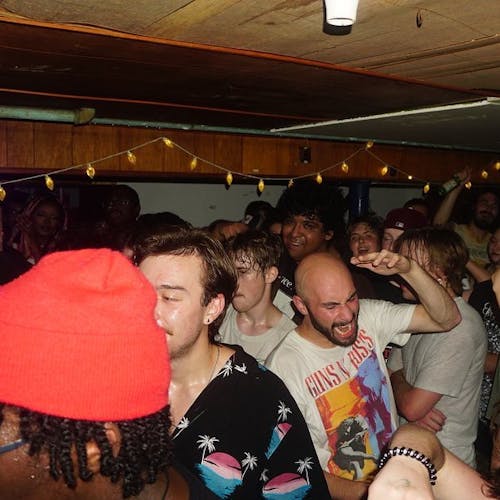Ellen's Cowboys controversy raises questions on polarization

Some may argue that it’s healthy to have friends that don’t agree with you on everything. It’s like being cool with someone who wears stripes when you hate them.
But the discussion may change if you’re gay and that “friend” has a history of running on anti-LGBTQ+ platforms.
This past week, Ellen DeGeneres was trending on social media. Not for the usual reasons, which is mainly because clips from her talk show gain our usual “awwwws” followed by a retweet.
Instead, Twitter erupted when America’s favorite lesbian talk show host was seen with former President George W. Bush at a Dallas Cowboys game.
To many Generation Z kids, this may not seem like much. Celebrities hang out with former presidents all the time. In an age where so much of what President Donald J. Trump says or does is blasted on media outlets, it’s hard to remember that there were presidents before him or even Barack Obama.
To remind people who may not know or remember, Bush has a history of being seriously anti-LGBTQ+ rights. In 2004, he showed strong support for the Federal Marriage Amendment, which aimed at keeping marriage between a man and a woman.
DeGeneres addressed the situation on her talk show. Those that were expecting an apology were sorely mistaken.
During the video, DeGeneres encouraged people to remember to show kindness to one another and remind us that it’s okay to be friends with people despite not agreeing “on everything.”
The question that seems to arise from all this is: Can people be friends if they're so politically opposed to one another?
Too often, people’s mere existence become instruments that are weaponized by politicians. Politics is personal. Living in the margins means that those who are in power will do everything they can to ensure you don’t have access to the benefits of “normal” life.
To be unapologetically gay at a time when gay marriage was still illegal was very much a radical act of defiance. This is exactly what DeGeneres did by coming out in the late 1990s. It must have been hard to accept who you are in a society that was doing everything to suppress that.
Excusing Bush’s acts as president as just something that DeGeneres “doesn’t agree with” seems like a cheap excuse. There were probably thousands of gay people that were most likely too afraid to come into themselves or were bullied for doing so. It seems unfair to dismiss these struggles and merely “be kind” to a man that was encouraging harmful rhetoric against them.
There were many tweets along the lines that this interaction should “give us hope for our future.” DeGeneres even cited one of these in her “apology” video.
To say this interaction gives hope for our future is baffling. A future of what exactly? I wouldn’t want to live in a world where grown adults aren’t held responsible for the actions they committed when fully aware of what they were doing.
Not to mention Bush’s global reputation. He is notorious for the “War on Terror” his administration launched against Afghanistan and later Iraq. There were hundreds of thousands of lives lost in this war that many believe was fought for unjust reasons.
When DeGeneres tells us to “be kind,” do you think Bush was thinking the same thing when his administration decided to disrupt the lives of hundreds of thousands?
There is also this sense that solidarity exists more across class lines than party ones. Bush and DeGeneres are both very wealthy individuals. As this situation was trending on Twitter, more photos of rich celebrities that are supposedly political opposites were being brought up. Chelsea Clinton beaming next to a grinning Ivanka Trump, is just one of the several examples people used to show that DeGeneres and Bush hanging out isn’t something new.
If DeGeneres can exhibit “kindness” to Bush despite his past, does this set a precedent on excusing people’s political views, or does it tell us that we should be more class-conscious?
Perhaps those of us who are not members of the wealthy elite should take this as a cue to stand in solidarity with those who are of our same economic class.
Maybe you can do it. Maybe you can be friends with people who are opposed to your way of life and do everything in their power to stop you from being yourself. Maybe we can reach a point where everyone can get along even when so politically opposed.
Until then, instances like DeGeneres and Bush’s will still stir many heated debates.



